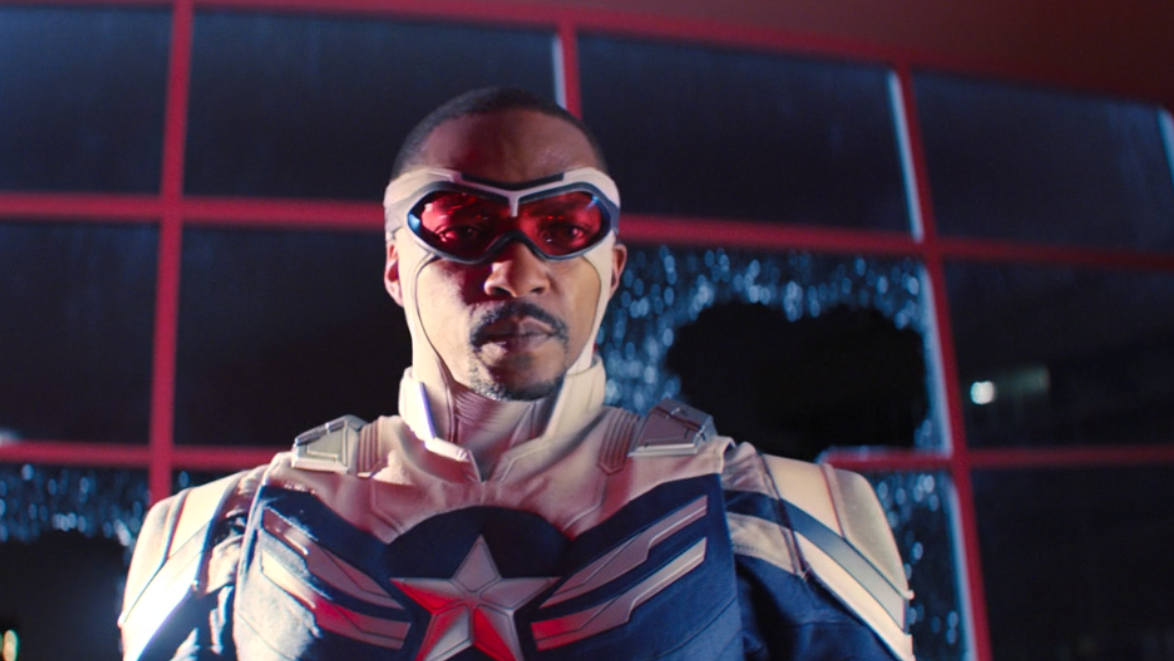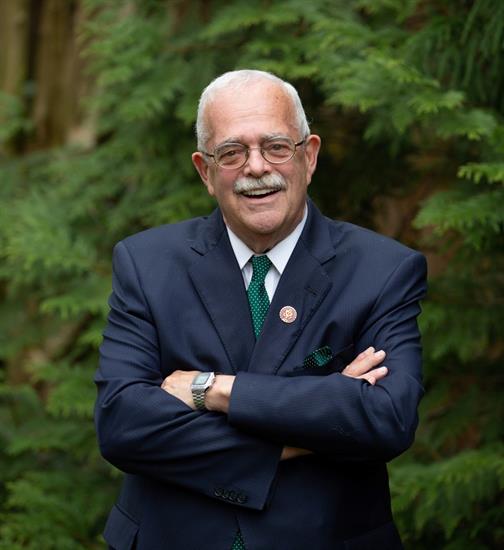Sam Wilson IS Black Captain America
Warning: Spoilers ahead.
The season finale of The Falcon & The Winter Soldier, the sixth episode of the series, saw Anthony Mackie’s Sam Wilson finally donning his own Captain America suit while carrying the symbolic shield.
Sam’s new suit (courtesy of the Dora Milaje) is a noticeable change from those of Steve Rogers and John Walker for two reasons. First, the biggest cosmetic difference is that Walker’s suit retains the wings from his previous identity as Falcon. Second, and more significant, Sam’s suit comes from Wakanda, meaning, like the Captain America shield, it could be made of vibranium. For longtime fans of the comic book, this is symbolic in that the history between the fictional African nation and the original Captain America was a strained one, yet in a time of crisis the people of Wakanda always came to serve the greater good.
These two departures from the original suit make one thing clear: Sam Wilson is a different kind of Captain America.
From the very first episode, the series focused on Sam Wilson’s internal struggle as he faced the fact that Steve Rogers left the shield to him, designating him the new Captain America at the end of Avengers: Endgame. As a Black man, Sam isn’t sure how to feel about holding the striped shield adorned with the star emblem. But he does know that, even if the world accepts him as Captain America, they will always see him as a Black man first. No amount of patriotism or service can erase that.
Sam soon learns that the legacy of the shield is just as complicated as the history of the country it represents.
In episode two of the series, Bucky Barnes introduces Isaiah Bradley, a Black super soldier who was imprisoned, tortured, and experimented on after serving his country. Isaiah was first introduced in the 2003 graphic novel Truth: Red, White and Black.
During that same episode, Sam is greeted by two kids in a Baltimore neighborhood. One of the kids recognizes Sam as “Black Falcon”, and Sam is quick to correct him by telling him that it’s just “Falcon”. This was a conscious choice by the writers to make it clear that Sam isn’t going to be Black Captain America; he’s JUST Captain America. But that point falls flat in the end.
After leaving Isaiah’s house, Sam and Bucky are having a loud argument when a police cruiser pulls up. The police harass Sam and ask Bucky if the mean Black man is bothering him before they realize that they’re members of the Avengers. This just goes to show that Sam doesn’t get special treatment because he’s a superhero; his heroism doesn’t counteract his Blackness. Regardless of whether a Black man is a Lieutenant in the United States Military or a literal superhero, he will always look the same to the cops.
The show doesn’t shy away from telling Isaiah’s story. In the fifth episode, Sam returns to Isaiah after reclaiming the shield from John Walker. But Isaiah doesn’t even want to see the shield. To him, it’s not the symbol of hope that the MCU movies have framed it to be; it’s a symbol of his oppression. It’s a symbol of what he could have been but wasn’t allowed to be. It’s a symbol of what he earned, what he deserved, what was rightfully his but was never given. That shield represents the system that killed the men he served with by injecting them with unstable super-soldier serums in a Tuskegee Experiment-esque program. Isaiah tells him that the country will never let a Black man be Captain America. And he’s right.
During the season finale, John Walker returns wearing his own Captain America suit and carrying a shield that he crafted himself in the end-credit scene of the previous episode. And though by the end of the episode he’s given the title of U.S. Agent, it’s clear that he’s still Captain America. Despite the brutal murder he committed in episode four, he’s granted something he doesn’t deserve…something that Isaiah Bradley was denied…redemption. From the start, the show made John Walker appear irredeemable in the eyes of the viewer, and in episode four, they made him appear irredeemable in the eyes of his world.
Abruptly forgiving John Walker raises an obvious question with an obvious answer. If their roles were reversed, would Sam Wilson be granted the same forgiveness? Would he be not only allowed to walk free but to continue his service? Absolutely not. Sam Wilson is still Black, and if he were guilty of Walker’s crimes–if he were guilty of any crime half as bad–he wouldn’t be allowed to walk free in any capacity. But Walker isn’t just allowed to walk free; he’s allowed to be a hero. He’s allowed to once again bear the name of the nation.
Like almost every cop who murders, assaults, or otherwise brutalizes an innocent Black person, John Walker isn’t held accountable for his actions. He was born and bred by a corrupt system that doesn’t value justice or accountability.
Walker’s redemption arc makes it clear that whether he’s given the title or not, he’s still Captain America. Isaiah was right when he said that they would never let a Black man be Captain America. And Sam’s costume shows that he’s not giving up his identity to do the job. He’s keeping the wings, and he’s wearing a suit that came from the Kingdom of Wakanda. As Falcon, Sam was the Black Avenger. (Of course, there is Colonel James “Rhodey” Rhodes, but you can’t see his skin tone in the War Machine armor.) As Captain America, he still is.
Walker’s redemption along with Isaiah Bradley’s story and the ongoing issue of systemic racism that exists in both the real world and the MCU counteract the narrative that writers were trying to create. The writers were trying to send a message that Sam Wilson wasn’t Black Falcon and wouldn’t be Black Captain America. But at the end of the day, a Black man cannot be Captain America without being Black Captain America.
Anthony Mackie is Sam Wilson is Black Captain America. And that isn’t necessarily a bad thing. Black America needs–no–it deserves a superhero. Especially right now.



